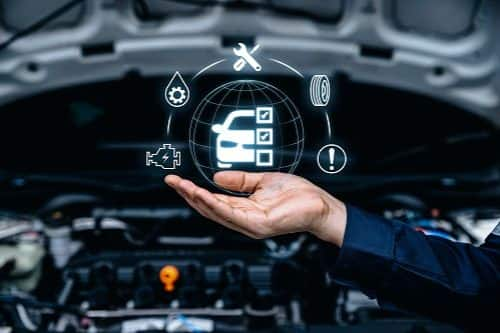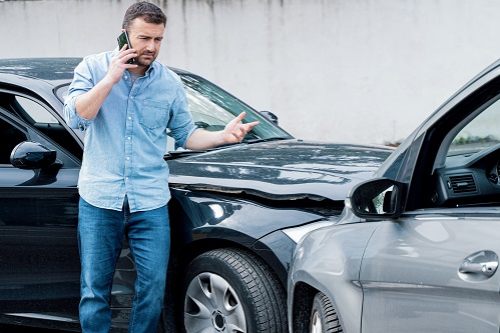- Cheapest non-owner car insurance companies in Washington
- Best non-owner car insurance in Washington
- Insurance.com's top choices for non-owner car insurance
- Average cost of non-owner car insurance in Washington
- Non-owner car insurance in Washington by age and gender
- Non-owner vs. traditional car insurance
- What does Washington non-owner car insurance cover?
- The bottom line: Non-owner car insurance in Washington
- Methodology
- Compare Washington non-owners car insurance rates with other states
Cheapest non-owner car insurance companies in Washington
GEICO offers the most affordable non-owner car insurance in Washington, with rates averaging $182. The second cheapest Washington non-owner insurer is State Farm. Average rates are $237.
Compare the cheapest non-owner car insurance companies in Washington below.
| Company | Average annual premium | Average monthly premium |
|---|---|---|
| GEICO | $182 | $15 |
| State Farm | $237 | $20 |
| Travelers | $290 | $24 |
| Nationwide | $433 | $36 |
| Farmers | $471 | $39 |
| Progressive | $693 | $58 |
| USAA | $137 | $11 |
Best non-owner car insurance in Washington
Although State Farm came out on top, GEICO and Travelers are also excellent choices for providing non-owner coverage.
To find the best non-owner car insurance companies in Washington, we looked at several factors, including how many complaints each company receives, financial stability and average rates. We used rate data from Quadrant Information Services as well as third-party ratings from J.D. Power, AM Best and the National Association of Insurance Commissioners.
The table below compares the top non-owner car insurance companies in Washington.
| Company | Average annual premium | J.D. Power | NAIC | AM Best | Overall score |
|---|---|---|---|---|---|
| State Farm | $237 | 821 | 0.70 | A++ | 3.46 |
| GEICO | $182 | 797 | 0.91 | A++ | 3.42 |
| Travelers | $290 | 810 | 0.49 | A++ | 3.41 |
| Nationwide | $433 | 810 | 0.64 | A+ | 2.92 |
| Farmers | $471 | 796 | 0.80 | A | 2.72 |
| Progressive | $693 | 807 | 0.65 | A+ | 2.48 |
Insurance.com's top choices for non-owner car insurance
Take a closer look at our top picks for non-owner car insurance in Washington
State Farm
Our number one pick for non-owner car insurance in Washington is State Farm. The average rate for liability coverage is $237. State Farm has an AM Best score of A++ and an NAIC complaint ratio of 0.7.
GEICO
GEICO is another great option for non-owner car insurance in Washington, with average rates of $182 per year. It has an AM Best rating of A++ and a low NAIC complaint ratio of 0.91.
Travelers
Our third pick is Travelers. Travelers rates average $290. Its NAIC complaint ratio is 0.49, and it has a rating of A++.
PEOPLE ASK:
Do I need Washington non-owner car insurance to drive a friend's car?
Probably not, unless you use the car a lot. If you only drive your friend's car occasionally, their insurance usually covers it under something called permissive use-as long as it's less than 12 times a year. Still, it's a good idea to check with your friend's insurance company just to be sure.
Average cost of non-owner car insurance in Washington
Non-owners car insurance in Washington costs $349. However, the rates may differ based on factors such as your driving record, age and coverage level.
Non-owner car insurance in Washington by age and gender
Whether you're looking for non-owner or standard car insurance, age and gender affect your rates in Washington.
Age is one of the most important factors that impacts car insurance rates. Younger drivers lack experience and are more likely to be in accidents. That means car insurance companies charge higher rates to offset claims.
Gender also plays a part in determining car insurance rates in most states. Males tend to be riskier drivers and have more injuries, leading to higher premiums.
Below are the average Washington rates for non-owner car insurance based on age and gender.
| Age group | Female | Male |
|---|---|---|
| Teens (16-19) | $722 | $687 |
| Young Adults (20-24) | $424 | $409 |
| Adults (25-60) | $345 | $344 |
| Seniors (65-75) | $364 | $347 |
Non-owner vs. traditional car insurance
Non-owner car insurance costs less than standard car insurance because it provides minimal coverage. It only includes liability coverage, while standard auto insurance offers many additional types of coverage.
For example, non-owner car insurance in Washington doesn't cover damage to the car you're driving or your injuries. Standard car insurance may include collision and comprehensive coverage to help pay for car repairs.
Insurance companies assume that people without a car drive less often, and because non-owner car insurance works as a backup to the owner's policy, the risk of a claimAn insurance claim is a request you make to your insurance company for coverage after your car is damaged or you have an accident. You can file a claim online, by phone, or in writing. is much lower.
The table below shows a comparison of average yearly rates for non-owner and standard car insurance.
| Non-owners state minimum policy | $349 |
| Traditional state minimum policy | $438 |
| State minimum car insurance limits | 25/50/10 |
What does Washington non-owner car insurance cover?
A Washington non-owner car insurance policy only provides the legally required coverage to be on the road. It includes all Washington minimum car insurance requirements. It doesn't cover any damage to the vehicle itself.
Non-owner car insurance is secondary, which means it will only apply after the car owner's policy limits are exceeded.
The bottom line: Non-owner car insurance in Washington
Drivers in Washington may need non-owner car insurance if they frequently rent or borrow a car. This coverage only includes liability protection, which pays for property damage or injuries you cause to others. It doesn't cover you or the car you're driving.
Non-owner car insurance in Washington costs an average of $349, with GEICO offering the lowest rates. Our analysis found that State Farm is the best overall choice. Keep in mind that your age, gender and driving record play a significant role in determining your insurance rates.
Shop around to find the best Washington non-owner car insurance available. Use the tool above to compare non-owner insurers in your area.
Methodology
Insurance.com analyzed non-owner car insurance companies in 2023 to find the cheapest and the best overall based on rates and third-party ratings.
Non-owner car insurance rates were fielded by Quadrant Data Services for a sample policy based on a 40-year-old driver with a clean record and good credit for a state minimum liability policy. These rates were one of the factors used to rank the best companies.
For additional data points in the ranking, customer complaints ratios were pulled from the National Association of Insurance Commissioners (NAIC) complaints database, where a score of 1.00 is considered the baseline and anything below is a low complaint volume while anything above is considered a high volume. Overall customer satisfaction ratings were drawn from J.D. Power's U.S. Auto Insurance Study, where companies are scored out of 1,000. Finally, AM Best financial ratings were used to indicate financial stability, where the best possible score is A++.
Compare Washington non-owners car insurance rates with other states
 You might also be interested in
You might also be interested in- Washington car insurance laws and requirements: What is changing in 2025
- Washington DUI and insurance: How much does a DUI raise your insurance?
- Speeding ticket calculator in Washington
- SR-22 insurance in Washington
- Washington gap insurance: Everything you need to know
- Low-income car insurance in Washington: What you need to know
- Washington car insurance coverage calculator
- Washington car insurance guide
- Cheapest car insurance for high-risk drivers in Washington
- Cheapest home and auto insurance bundle in Washington





